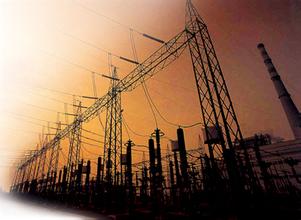
Different from the traditional energy meter, the smart meter is an all-electric energy meter with a hardware clock and a complete communication interface. It has features such as high reliability, high security level, and large storage capacity. In addition to the metering function of the basic electricity consumption of traditional energy meter, in order to adapt to the use of smart grid and new energy, smart meter also has two-way multi-rate metering, user-side control, and bidirectional data communication of multiple data transmission modes. Stealing and other intelligent features.
The smart meter is an important part of intelligent power supply, and it is a “peripheral nerve†that realizes two-way interactive intelligent power supply. It supports two-way metering, automatic acquisition, step price, time-of-use price, freezing, control, and monitoring. After being used up, the power meter will automatically power off and the smart meter has been perfectly implemented on the Internet. It is as simple as charging a mobile phone. The smart meter represents the development direction of future intelligent terminals for energy-saving smart grid end users. To promote smart meters and electricity information collection systems, users can scientifically adjust their usual electricity usage habits according to their own electricity consumption information, do a good job in family planning, and achieve energy-saving and low-carbon life.
With the increasing development of smart grids, the demand for intelligent user terminals is increasing in various countries in the world. The gradual promotion of applications such as the Internet of Things, smart homes, smart security, and broadband networks has also promoted the rapid growth of demand for smart meters. The smart meter market has great potential.
Although the smart meter's two-way communication function can promote the intelligent networking world and create new opportunities for the power company's business development, the use of public wireless networks such as 3G and 4G to support the smart grid is of great significance and can help power companies significantly reduce management complexity. The workload brought about by the communication network enables it to focus on home and business power distribution. Power companies are expected to use the mature technologies and economies of scale of telecom operators to accelerate the development of their smart grids.
For telecom operators, the development of smart grids and smart meters is a "big advantage." In the era of the Internet of Things, more and more network sensors are embedded in various devices in the real world (including smart meters), and the emergence of cloud computing provides storage space for the massive data generated by the Internet of Things and makes real-time online processing possible. . Smart meters are an important scenario for large-scale M2M applications.
With the simultaneous advancement of urbanization and informatization and the continuous expansion of applications for the Internet of Things, smart meters, smart meters, smart heat meters, smart gas meters, and other smart watches are increasingly becoming indispensable equipment for urban families. The continuous growth will bring great opportunities for the development of new services for telecom operators.